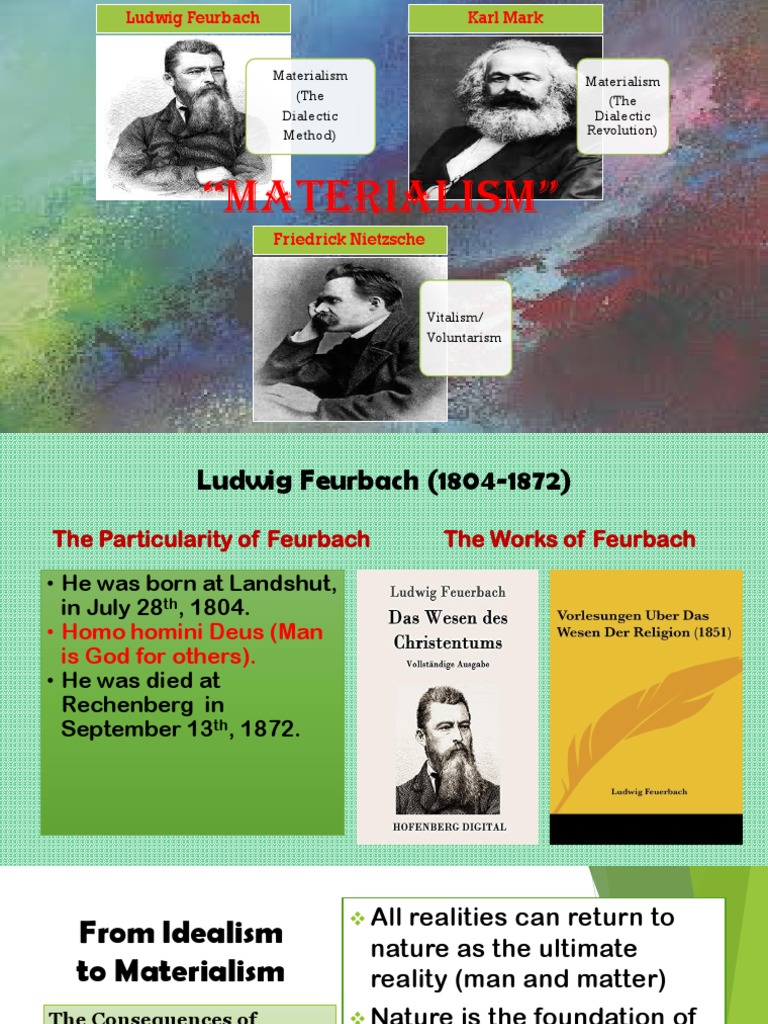The enlightenment era, a profound shift in human thought, ushered in a myriad of ideas that shaped the modern world. Among these concepts, materialism emerged as a dominant philosophical stance, asserting that the tangible and measurable aspects of existence reign supreme. However, a growing number of individuals have begun to articulate the limitations of this worldview, suggesting that it engenders a profound loss of meaning in human life. For Bahá’ís, a spiritual perspective adds a layer of complexity to this discourse, illuminating pathways towards a more fulfilling and meaningful existence.
To understand this intricate interplay between enlightenment materialism and the loss of meaning, one must first delve into the fundamental tenets of Bahá’í teachings. Rooted in the principle of unity, the Bahá’í Faith encourages individuals to transcend materialistic distractions and recognize the interconnectedness of all life. The belief in the oneness of humanity reflects a broader cosmic order, suggesting that every individual holds intrinsic value beyond mere physical existence. This metaphysical dimension offers a counter-narrative to the reductionist lens of enlightenment materialism, where the spiritual realm is often dismissed in favor of quantifiable variables.
Enlightenment materialism, with its emphasis on empirical evidence and logical reasoning, often leads individuals to view existence through a sterile prism. In this context, existential questions such as “What is the meaning of life?” or “What purpose do we serve?” tend to dissolve into abstract debates. The Bahá’í Faith posits that meaning is not an arbitrary construct; rather, it arises from the recognition of our spiritual obligations and the cultivation of virtues. Through the lens of this progressive revelation, one begins to perceive life as a tapestry woven with purpose, rich in significance.
Moreover, the Bahá’í perspective emphasizes a balanced approach to understanding human existence. Materialism, while valuable in its appreciation of the physical world, often neglects the moral and ethical dimensions of life. The teachings advocate for a synthesis of spiritual and material progress, asserting that genuine advancement is achieved when both realms are pursued in harmony. This duality reminds us that while we inhabit physical bodies, our existence transcends mere physicality; we are seekers of truth, harmony, and connection.
The Bahá’í writings contend that the relentless pursuit of material wealth can deteriorate the human spirit, leading to disillusionment and a sense of purposelessness. As society increasingly idolizes wealth and possessions, individuals often find themselves ensnared in a ceaseless cycle of desire and dissatisfaction. The consequence of such material attachment may yield feelings of isolation and emptiness. Thus, the Bahá’í teachings invite individuals to cultivate a deeper understanding of their spiritual nature, encouraging a shift in focus from ownership to stewardship.
Furthermore, the erosion of meaning in contemporary society can also be attributed to the prevailing cultural narratives that idolize individualism. Enlightenment materialism has often reframed spirituality as a private affair, leading to a fragmentation of communal bonds. The Bahá’í Faith, conversely, promotes the essential role of community in nurturing the human spirit. The path of service, voluntary contributions to society, and unity foster engagement and connection. Through collective endeavors, individuals find their lives intertwined, contributing to a sense of belonging and purpose that transcends personal ambition.
The Bahá’í teachings also admonish against the danger of absolutisms often underpinning materialist ideologies. The relativism that may arise in a purely materialistic framework can lead to nihilism—the belief that life lacks intrinsic meaning. In stark contrast, Bahá’í principles advocate for a dynamic understanding of truth, suggesting that while there are perennial spiritual truths, their interpretation may evolve as humanity progresses. This perspective is empowering—it invites both personal and collective exploration of life’s mysteries, fostering an insatiable curiosity that enriches existence.
One of the transformative aspects of the Bahá’í Faith is its emphasis on education as a catalyst for spiritual and intellectual growth. Enlightenment materialism may prioritize immediate gratification and measurable outcomes, but the Bahá’í teachings elucidate the importance of lifelong learning. Knowledge, construed as a path toward self-discovery, facilitates an awakening of the soul to its purpose. As individuals endeavor to grasp the complexities of existence, they find that true fulfillment lies beyond material pursuits. The cultivation of wisdom acts as a beacon, guiding individuals through the labyrinth of modern life.
In light of the aforementioned reflections, it becomes evident that the Bahá’í perspective on enlightenment materialism offers a profound counterbalance to the prevailing philosophical norms. The teachings illuminate pathways towards recognizing the inherent beauty of existence, underscoring that life is not merely a construct of material realities but a grand narrative imbued with purpose. The call to transcend the limitations of materialism beckons individuals to foster connections, embrace service, and nurture their spiritual faculties.
Ultimately, the discourse surrounding enlightenment materialism and the loss of meaning invites an exploration of the very essence of what it means to be human. The Bahá’í teachings encourage individuals to embark on this journey with curiosity and an open heart, seeking understanding in the intertwined spheres of spirit and matter. In doing so, one may not only reclaim a sense of meaning but also participate in the unfolding narrative of humanity’s collective evolution—a narrative rich in potential and profound unity, resonating with purpose.
